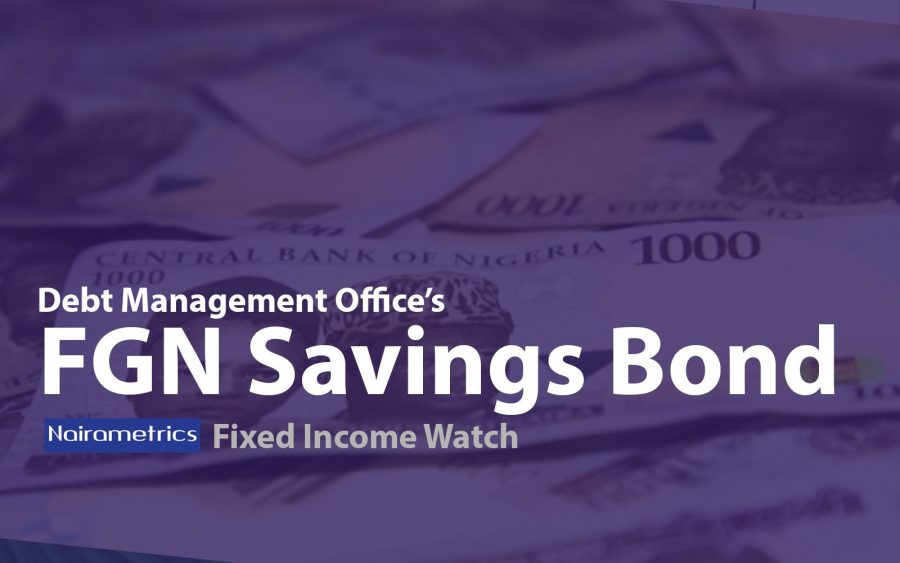I’m sure you’ve probably come across the word “Bonds” before. Either in the news, online or on the pages of a newspaper. I can also guess when you try to figure out more about it, they just confuse you the more with all the financial jargons you are so not interested in.
I’m going to try to explain in such a way even a dummy would understand it. I hope and do at the end of this blog. If I start to sound like one “over sabi” guy please let me know.
What are bonds?
Ans – Bonds are simply a term for loans that you give to the Federal Government, State Government, Companies etc.
Is it a document or what?
Ans –It’s simply a piece of paper issued by the Borrower (e.g the Government) stating the amount borrowed from you, the tenor (no of years with which to repay), interest rate, and repayment period
Why me? Can’t they go to a bank to borrow money?
Ans –You because you may have some money that you wish to save. You may say you have just N10k to save a month from your salary and wonder how that helps the government. Imagine that there are 1million people with N10k to save, that transcends to N10b already. Also have in mind that the money the banks actually lend are money deposited by you and I. So you and I are the major source of money for government, banks, corporations etc. That is why they tax us, pursue us to open accounts, and pressure us to buy their goods.
[Read Also: How to read stock market tables]
What’s in it for me?
Ans –Bond issuers (borrowers like the government) typically attach a coupon to the Bonds. Coupon is basically interest rates attached to the Bonds issues. For example, the Government can issue a bond for say N10b, 10year bonds at a coupon of 6%pa. What they mean is that they want to borrow N10b from the public and are willing to pay 6% interest rate for it per annum for a period of 10years.
Usually they pay you the principal amount at maturity meaning at the end of 10years and sometimes they can have the option to “call back” which basically means the can pay you the principal before the 10 year period. Bonds with “Call Back” are always clearly stated in the prospectus.So, in a nutshell if you borrow them N10k, you form part of many others who must have lent them as well. They pay you N600 per annum and pay you the N10k a the end of 10 years.
What? Just N600? Yes just N600.
Ans –Well, you may think of it as low but the if you put that same amount in a Savings Account of bank you’d probably get N200 and stand the risk of loosing it if the bank collapses. Besides if it is N1m you invest then that’s N60k every year, N10m is N600k and N100m is N6m per annum.
Are you saying Government Can’t collapse?
Ans –Well technically they can but it’s very unlikely. Even if they do, it’s if there is a war but then they must repay after the war is over. Government bonds are mostly secure and are guaranteed by the full faith and credit of the Government.
So I have to wait for 10years to get my money back? Off course not. The beauty of bonds is that you can exchange them just like shares. You can decide to sell your bond on the bond market if you want your money back.
Oh, so I put in N10k and get my N10k back plus interest?
Ans –Yes if you decide to hold to maturity and wait for 10years. But if you wish to sell before then you can except that it could be worth more or less. Just like shares the value of bonds go up and down depending on economic factors. So, the bond you bought for N10k may be worth N11k or N9k when you are selling it. Just like shares, today it’s up tomorrow it may be low. But at maturity (the repayment day) the government or borrower must pay you the face value. The face value is the N10k you paid them. Movement in the market does not affect what the borrower pays you.
[Read Also: Your “beard gang” is affecting the valuation of this global firm]
So are bonds really like shares then?
Ans –Not exactly, whilst both are investment securities they are different in their nature. When you buy shares, you buy right to earn a dividend of a company. Meaning that you only get dividends when the company decided to pay you. For a Bond, the borrower or issuer (that is the Government or company) MUST pay you interest (coupon) a the stated date. In other words, owners of shares are equity holders, whilst owners of bonds are debt holders.
I have often heard of yields, what is that too?
Ans –Well yields are basically interest on traded bonds. In my previous illustration I explained that the government pays you a coupon of 6%pa on your N10k bond. Since we understand that bonds are tradable, supposing the value was 9k at the time you sell the bond. It then means whomever buys it will earn N600 on the N9k he paid out.
Thus his actual interest otherwise called yield is 600/9000 = 6.66%. So he gains an extra .66% and still gets to get another N1000 if he decides to wait till the maturity of the bond. They often say the yield of a bond moves in opposite direction to the value. Just as above, as the value dropped to N9k the yield increased to 6.66%.
That’s cheating me isn’t it?
Ans –Nah not true. Remember, there is an opportunity cost you may incur if you do not sell. Imagine you had a business that will probably get you twice that amount if you sell. So instead of holding on just so it gets to 10k or higher, you sell and use the money for something more tangible. Also remember that you would have collected some interest as well. And then you can simply just hold on till maturity, it all depends on your opportunity cost.
Ok now I get it! How do I then invest?
Ans –Bonds can be purchased either through the primary or secondary market.
The primary market is where you buy bonds that have just been offered by the seller like the Government (just like buying a public offer). The secondary market is where you buy tradable bonds that is, bonds from the bonds market (just like buying shares in the stock market). Bonds traded in the secondary market are usually done on the floor of the Nigerian Stock Exchange or Over the Counter (OTC) through the PDMM
Bonds sold in the primary or secondary market are bought through a PDMM(Primary Dealer Market Maker). PDMM are operators licensed to buy and sell bonds. Most of them are banks like Zenith, GTB, UBA, Diamond Bank to name a few. They also have discount houses like Kakawa Discount House, FSDH who sell as well. You get the application form from them, fill it, include your cheque in full for the amount you wish to invest. You can invest as much as you can, from N10k to N1b depending on your capabilities financially. But the minimum is N10k and multiple of N1k thereafter.
[Read Also: The Federal Government is set to auction fresh N100 billion bonds]
The bonds purchased are confirmed through issuance of depository or issuance of certificates. The depository is the CSCS (Central Security Clearing System) an online storage for securities such as shares and bonds.
How do I get my interest?
Ans –Interest on Government Bonds are paid Semi annually.For example in June and December or in January and July. Payment is through issuance of cheques or warrants, similar to the dividend warrants you get for shares.
Also note that interest rates can be fixed or floating. Fixed means when they say they will pay you 6%pa then it is 6%pa you get till the end if the maturity. Floating means they may pay you an amount that is linked to a are that moves with the market. For example they might say Nibor 8% plus 2%. Meaning the rate is benchmarked o. The Nigerian Interbank Official Rate (Nibor) of 8% plus 2%. The Nibor is a rate that banks use to lend money to each other and it always changes in response to market conditions and is thus the floating rate.
So what do you think? Is it clearer to you now or did I just confuse you more? Do not hesitate to ask if you require more information

















It’s very clear but you didn’t mention some terms I do come across sometimes, like clean price and dirty price of a bond. I will appreciate if u can explain them also.
Thanks
Nice one on bonds.
Thanks so much very informative
Thanks so much
Thanks for educating me on this…Actually listened to you this morning on the radio.
Thank you
What are the minimum percentage
Jedediah, minimum percentage of what?
In your illustration you sight 6% as an example, if I invest 1m for 10 years how much am I likely to get as interest. In calculation 6% interest of 1m is 60k. Am I going to get 60k on 1m for 10 years ?
Jedediah, the 6% is actually per annum. That means you get 6% of 1m yearly for 10 years which is N600k.
Thanks for the information.
Is 10 years the minimum duration for the maturity of bonds?
Thank you for your insightful article. I want to know how the borrower comes up with the interest rate. Does the current inflation rate plays a vital role in pegging the interest rate and will you advise one to invest in bond with an interest rate lower than the prevailing inflation rate in a volatile economy like Nigeria?
Thanks for the information.
Is 10 years the minimum duration for the maturity of bonds?
Thanks for the valuable insight…so, if i want to buy a bond I can visit any of the banks mentioned above right?
Well explained article in simplest terms & illustrations, just as you mentioned at the beginning; “even a dummy will understand it”. Please keep up the fine work of helping others become financial literates.
Wow! Nice one! Understood better after reading this.
Weldone